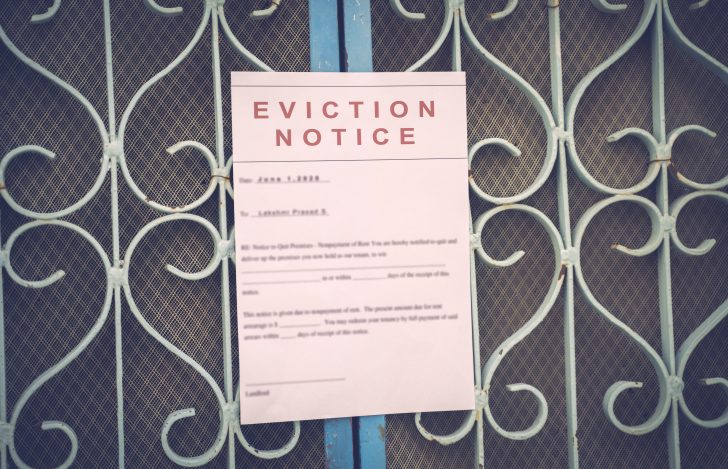Bogus Owner Move-In Evictions: City Passes Reform to Curb Wrongful Evictions

21Aug
Bogus Owner Move-In Evictions: City Passes Reform to Curb Wrongful Evictions
If your landlord enacts an Owner Move In Eviction and then never moves in? This is known as a bogus owner move in eviction. Tenants who have been forced to move out have grounds to sue for wrongful eviction. Recent studies show that this law has been frequently abused by owners as a means to evict low-rent-paying tenants.
Owner Move-in evictions, or “OMIs,” allow property owners to recover possession of a tenant-occupied unit for use as their primary home – or a relative’s use where the landlord already lives in another unit in the building. This law exists so that landlords who want to live in their own property can do so.
Recent studies show that this law has been frequently abused by owners as a way to evict low-rent-paying tenants
In July 2017 the San Francisco Board of Supervisors voted to amend the Rent Ordinance in an effort to change this. In this article we address owner move-ins generally, how to watch out for wrongful OMIs, and some of the features of the new amendment.
Owner Move-In Evictions
To qualify for an owner move-in eviction an owner must have a certain ownership interest (25% or more if they purchased after 2/21/91; 10% if prior). Owners are prohibited from recovering possession if there is a comparable vacant unit available. An owner is required to make the affected unit their primary home. An owner can only have one “principal place of residence.” If an OMI has ever been completed at a property (even by a previous owner), that unit becomes the only unit that can be used for OMIs moving forward. To initiate an OMI a landlord must provide written 60-day notice to the affected tenants. For more information on the notice requirements check out our website’s breakdown on owner move-in evictions here.
Following an OMI the owner must move into the affected unit within 90 days, and maintain the unit as their principal residence for a period of at least 36 consecutive months.
Bogus/Wrongful OMIs
Unfortunately, many landlords are filing owner move-in evictions only to re-rent the unit to new tenants, rent it out on Airbnb or leave it vacant. This is known as a “Bogus OMI.” Though totally illegal, the City has done little to discourage landlords from doing this.
Tenants who have been evicted under the pretense of an owner move-in eviction where the landlord fails to move in may be entitled to substantial monetary damages as well as the right to move back into the unit. But how do tenants find out whether or not their landlord has actually moved in?
While there’s no easy answer, some tips include: Staying in touch with / checking in with former neighbors; driving by the property to check for signs that someone is actually living there; checking websites like AirBnB or Craigslist to see if their unit shows up in searches; checking the title history to see if the property has been sold; researching the property at the SF Rent Board to see if the OMI was registered; or, in some cases, hiring a private detective.
Some tenants are taken aback by the notion of snooping on their landlord but the number of bogus owner move-in evictions in San Francisco alone is staggering (CITE). And for tenants – particularly long-term rent controlled tenants – losing their home in this fashion can have an enormous financial impact. Investigators can discover whether your landlord is paying for utilities at the residence (or anywhere else), or claiming a homeowner’s tax exemption for another property (this exemption is generally only allowed for one’s primary residence). Contacting a tenant’s rights law firm or housing nonprofit may also be useful for this kind of research.
Pushing Back on Bogus OMIs: Reform by Board of Supervisors
In July 2017, the SF Board of Supervisors voted to pass reforms in an effort to curb bogus owner move-in evictions and provide stronger penalties for landlords who shirk the law. These changes include:
- Expanding the Statute of limitations: Tenants now have five years to sue for a wrongful owner move-in eviction. (previous statute of limitations was 1 year.)
- Nonprofit right of action: While tenants already have the ability to sue a landlord for a wrongful eviction the change in the law extends this right so that housing non-profits now have standing to sue landlords on behalf of the public. This creates yet another tool to dissuade landlords from evading the owner move-in restrictions.
- Owner Statement of Occupancy: As of January 1, 2018, Owners who file an OMI will have to file a statement of occupancy under penalty of perjury that they intend to reside in the unit. Owners will also have to file updates with the Rent Board at 90 days, 12 months, 24 months, 36 months, 48 months, and 64 months after recovering possession including information about who is living in the unit, and the amount of rent charged (if applicable) among other things.
- Five-Year Rent Freeze: A landlord cannot, within five years of recovering possession, rent to a new tenant for more than the evicted tenant was paying (subject to annual allowable increases). Creates a mechanism for subsequent tenants to sue if they are charged more than the evicted tenants were paying. Evicted tenants now have the right to move back into the unit at their old rent if the landlord does not remain in the unit for five years.
- Evidence of Bad Faith: An owner’s failure to file a copy of the OMI Notice with the Rent Board can be used as evidence of bad faith (For purposes of defending an eviction for example).
The hope is that these new rules will help discourage landlords from abusing their right to evict tenants under the guise of an owner move-in while also arming tenants and tenant advocates with more tools to go after those landlords who ignore the rules. Time will tell but this appears to be a step in the right direction to curb abuse.
Related Posts You Also May Like
Get Started
For more information or to discuss your legal situation, call us today at (415) 649-6203 for a phone consultation or submit an inquiry below. Please note our firm can only assist tenants residing in San Francisco, Oakland & Berkeley.





